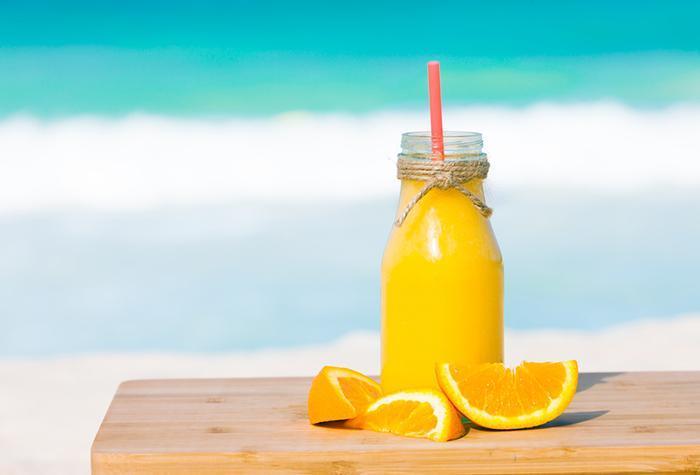Your Cart is Empty
FREE SHIPPING OVER $45 & RETURNLESS REFUNDS

Yes, you’ve likely heard that drinking soft drinks isn’t good for you, but do you know why? Beyond the obvious that soft drinks contain a lot of sugar, which means they are high in calories, soft drinks pose a laundry list of serious health risks. We’re going to break it down for you, so you may want to think twice before filling that Big Gulp!
The beverage industry is a multibillion-dollar mega-industry that spends billions each year on advertising and marketing, particularly to children, teens and communities of color. The industry has expanded exponentially over the past five or six decades, with the availability of soft drinks tripling between 1954 and 2015.
What started as an occasional treat at the local drugstore soda fountain has morphed into a daily drink for millions of people – and more than just one daily drink for most.
Now you can buy soft drinks in just about any type of store, gas station, vending machine, theater, event, festival, restaurant — even your local car wash has a fountain drink machine so you can fill a to-go cup while you watch your car go through the wash.
Historically, consumers in the 1950s had only one option — a standard soft drink bottle held 6.5 ounces. Twelve-ounce cans hit the scene in 1960, and then we saw 20-ounce bottles become the norm in the 1990s. Fountain drink cups have morphed from 7 ounces to behemoth-sized ones of 42, 64 and even 128 ounces!
The average American consumes about 40 gallons of soft drinks per year, which translates into almost 4,000 teaspoons of sugar per year. All this sugar consumption has led to a significant amount of weight gain and obesity rates for many of us.
Not only do soft drinks contain a high amount of sugar, it’s in the worst form for our bodies — high fructose corn syrup (HFCS). HFCS is a highly processed industrial product that is less expensive to make than sugar from sugar cane. The beverage industry and the also enormous corn industry have a symbiotic relationship. HFSC and regular sugar differ in their molecular makeup, so our bodies metabolize them differently.
Regular sugar is a type of sugar called sucrose, which is made of equal numbers of glucose and fructose molecules. Our bodies must break down the sucrose into glucose and fructose in our gastrointestinal tract before they can be absorbed.
We’ve already noted that soft drinks contain a lot of calories. Nuts contain a lot of calories too — but you’re not likely to develop fatty liver disease or obesity from eating nuts! Countless studies have found direct correlations between soft drink consumption and obesity, due to several factors.
Insulin is a hormone produced by our pancreas that helps move glucose from your blood into your cells, where it can be converted to energy or stored for future use. When we continually load up our bloodstream with glucose from soft drinks, our cells begin to “ignore” the insulin — a condition called insulin resistance.
Leptin is a hormone in our bodies that tells our brain how much fat we have stored. If we need to gain weight, leptin tells our brain to eat more and conserve energy. If leptin tells our brain we have plenty of fat stored for energy and normal metabolic processes, then our brain tells us to eat less and burn more energy.
Gout is an extremely painful type of inflammatory arthritis that affects our joints and surrounding soft tissue. Gout develops when too much uric acid accumulates in our blood. The excess uric acid forms needle-like, monosodium urate (MSU) crystals in our joint linings (synovial membrane or synovium).
These are just a few of the more serious reasons you might want to reduce or even better, eliminate soft drinks from your diet. Soft drinks contain absolutely no nutritional elements. They wreak havoc on your teeth — not only from the sugar but from the acids they contain. Soft drink can linings can also contain BPA, a substance that has been banned from baby products due to its link to hormone disruption.
https://www.hsph.harvard.edu/nutritionsource/healthy-drinks/sugary-drinks/
https://drhyman.com/blog/2011/05/13/5-reasons-high-fructose-corn-syrup-will-kill-you/
https://www.healthline.com/nutrition/leptin-101#leptin-resistance
https://www.healthline.com/nutrition/insulin-and-insulin-resistance#section1
https://www.healthline.com/nutrition/13-ways-sugary-soda-is-bad-for-you#section6
https://www.ncbi.nlm.nih.gov/pubmed/18244959
https://goutandyou.com/sugar-fructose-high-fructose-corn-syrup-and-gout/
https://www.ncbi.nlm.nih.gov/pubmed/18244959
*These statements have not been evaluated by the Food and Drug Administration.